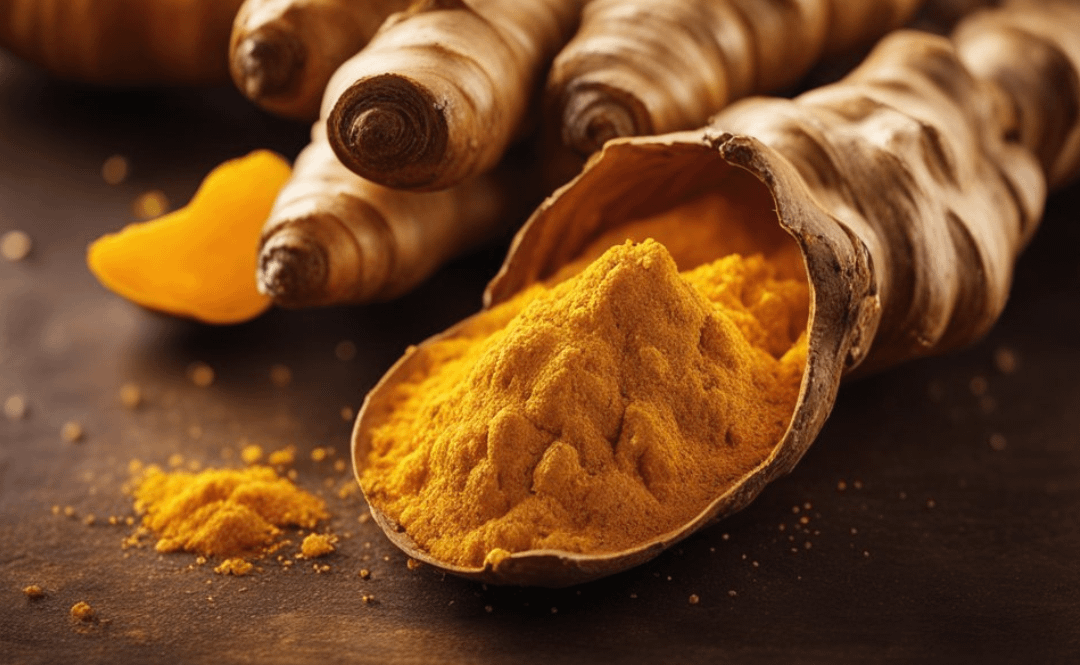Turmeric is a spice that has been used for centuries in traditional medicine practices, particularly in India and China. It is well-known for its vibrant yellow color and its ability to add flavor to dishes, but it also has a range of potential health benefits. In this article, we will explore the healing power of turmeric and the ways in which it can be used to support overall health and well-being.
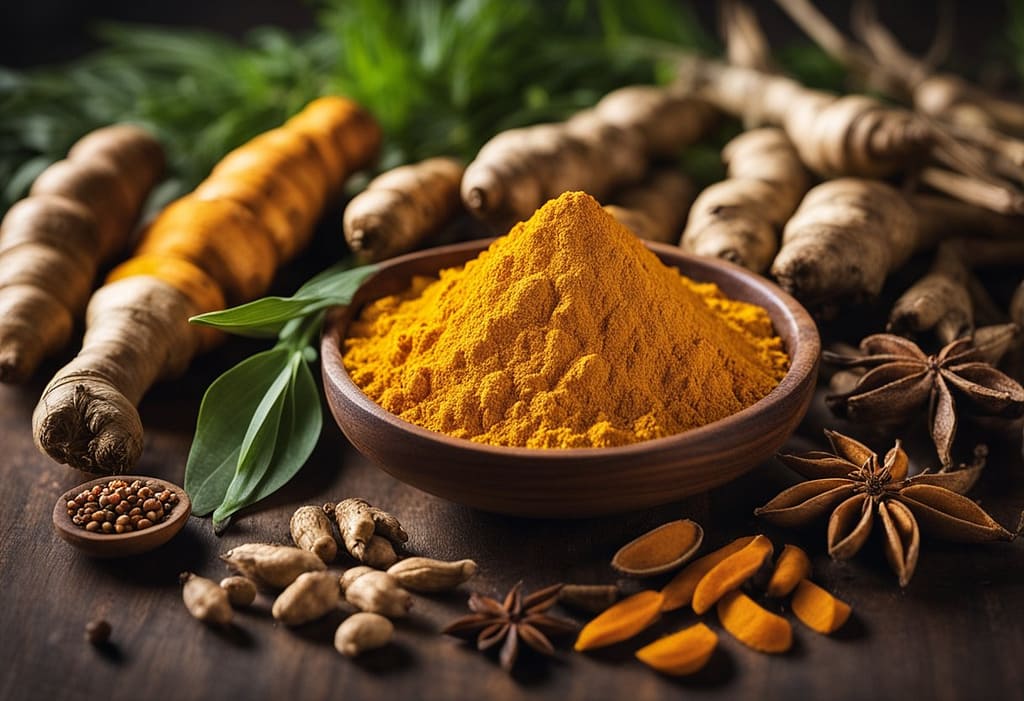
Turmeric contains a compound called curcumin, which has been shown to have anti-inflammatory and antioxidant properties. This means that it may help to reduce inflammation in the body and protect against oxidative damage caused by free radicals. Some studies have suggested that curcumin may also have anti-cancer properties, although more research is needed in this area.
Overall, there is a growing body of evidence to suggest that turmeric may be a powerful tool for supporting health and preventing disease. Whether you are looking to add more flavor to your meals or you are interested in exploring the potential health benefits of this ancient spice, there are many reasons to consider incorporating turmeric into your diet.
Key Takeaways
- Turmeric contains curcumin, a compound with anti-inflammatory and antioxidant properties that may help to reduce inflammation and protect against oxidative damage.
- Turmeric may have potential anti-cancer properties, but more research is needed in this area.
- Incorporating turmeric into your diet may be a simple and effective way to support overall health and well-being.
The Origins and Composition of Turmeric
Turmeric, a spice derived from the root of the Curcuma longa plant, is widely used in Indian cuisine and traditional medicine. The bright yellow color of turmeric comes from a compound called curcumin, which also gives the spice its distinctive flavor.
Cultural Significance in India
Turmeric has been a staple in Indian culture for thousands of years, used in cooking, religious ceremonies, and traditional medicine. In Hinduism, turmeric is considered sacred and is used in wedding ceremonies and other rituals. It has also been used for centuries in Ayurvedic medicine to treat a variety of ailments, including digestive issues, skin problems, and inflammation.
Curcumin: The Active Ingredient
Curcumin is the primary active ingredient in turmeric and is responsible for many of its health benefits. It has powerful anti-inflammatory and antioxidant properties, making it a popular natural remedy for conditions such as arthritis, heart disease, and cancer.
Studies have shown that curcumin can help reduce inflammation in the body by blocking the activity of certain enzymes and cytokines. It also has antioxidant properties, which means it can neutralize free radicals and protect against cellular damage.
While turmeric is a popular spice used in cooking, it’s important to note that the amount of curcumin in turmeric is relatively low. To experience the full health benefits of curcumin, it may be necessary to take a curcumin supplement or use a concentrated extract.
In conclusion, turmeric is a spice with a long history of use in Indian culture and traditional medicine. Its active ingredient, curcumin, has powerful anti-inflammatory and antioxidant properties and is responsible for many of the spice’s health benefits.
Health Benefits of Turmeric
Turmeric is a spice commonly used in Indian cuisine, but it is also known for its medicinal properties. In this section, we will discuss some of the health benefits of turmeric.
Anti-Inflammatory Properties
One of the most well-known benefits of turmeric is its anti-inflammatory properties. Curcumin, the active ingredient in turmeric, has been shown to reduce inflammation in the body. Chronic inflammation has been linked to many diseases such as heart disease, cancer, and arthritis. By reducing inflammation, turmeric may help prevent or manage these conditions.
Antioxidant Effects on Free Radicals
Turmeric is also a powerful antioxidant. Antioxidants help protect the body from damage caused by free radicals. Free radicals are unstable molecules that can damage cells and contribute to aging and disease. By neutralizing free radicals, turmeric may help prevent or reduce the risk of chronic diseases.
Supporting Joint and Heart Health
Turmeric has been used for centuries in traditional medicine to treat joint pain and inflammation. Recent studies have shown that turmeric may be effective in reducing joint pain and improving mobility in people with osteoarthritis. Turmeric may also help improve heart health by reducing cholesterol levels and preventing the buildup of plaque in the arteries.
Potential in Cancer Prevention
Some studies have suggested that turmeric may have anti-cancer properties. Curcumin has been shown to inhibit the growth of cancer cells and prevent the formation of new blood vessels in tumors. While more research is needed in this area, turmeric may have potential in cancer prevention and treatment.
In conclusion, turmeric has many health benefits due to its anti-inflammatory and antioxidant properties. It may help prevent or manage chronic diseases such as arthritis, heart disease, and cancer. Turmeric is a versatile spice that can be easily incorporated into your diet.
Turmeric in Diet and Cooking
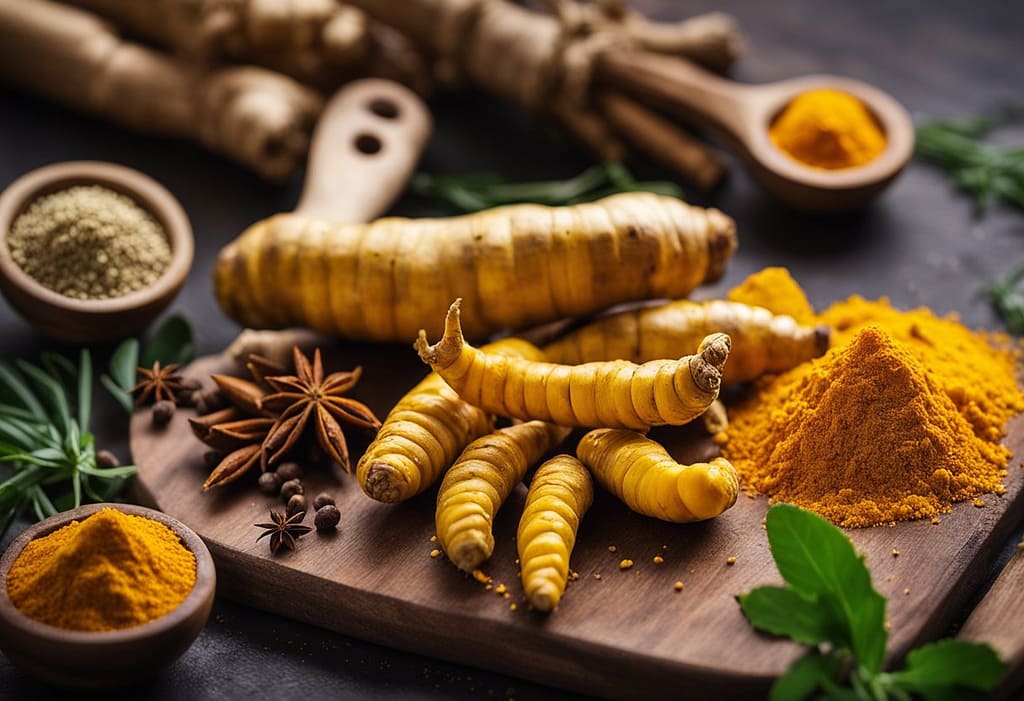
Turmeric is an incredibly versatile spice that can be used in a variety of dishes and cuisines. It has a warm, slightly bitter taste and a bright yellow color that makes it a popular choice for adding both flavor and color to food. In this section, we’ll explore some ways to integrate turmeric into your diet and cooking.
Integrating Turmeric into Recipes
One of the easiest ways to incorporate turmeric into your diet is by using it in your cooking. You can add it to soups, stews, curries, and even rice dishes. Turmeric pairs well with other spices like cumin and pepper, so it’s a great addition to any curry powder blend. You can also use it to make a golden milk latte or add it to smoothies for an extra boost of nutrients.
Here are a few recipe ideas to get you started:
- Turmeric Roasted Vegetables: Toss your favorite vegetables in olive oil and turmeric, then roast in the oven until tender and crispy.
- Turmeric Chicken Curry: Sauté onions, garlic, and ginger in oil, then add chicken, turmeric, cumin, and other spices. Simmer until the chicken is cooked through, then serve over rice.
- Turmeric Smoothie: Blend together spinach, frozen pineapple, turmeric, ginger, and coconut milk for a refreshing and healthy beverage.
Ayurvedic Practices and Uses
Turmeric has been used in Ayurvedic medicine for centuries due to its powerful anti-inflammatory properties. Ayurveda is a holistic approach to health and wellness that emphasizes the importance of balancing the body, mind, and spirit.
In Ayurvedic practices, turmeric is often used to support healthy digestion, reduce inflammation, and boost the immune system. It’s also used topically to treat skin conditions like acne and psoriasis.
To incorporate turmeric into your Ayurvedic routine, try adding it to your meals or taking a turmeric supplement. You can also mix turmeric with honey to make a soothing face mask or apply it directly to your skin to reduce inflammation.
In conclusion, turmeric is a versatile spice that can be used in a variety of ways to enhance the flavor and health benefits of your meals. Whether you’re making a curry or a smoothie, adding turmeric to your diet is a simple and effective way to support your overall health and wellness.
Supplementing with Turmeric
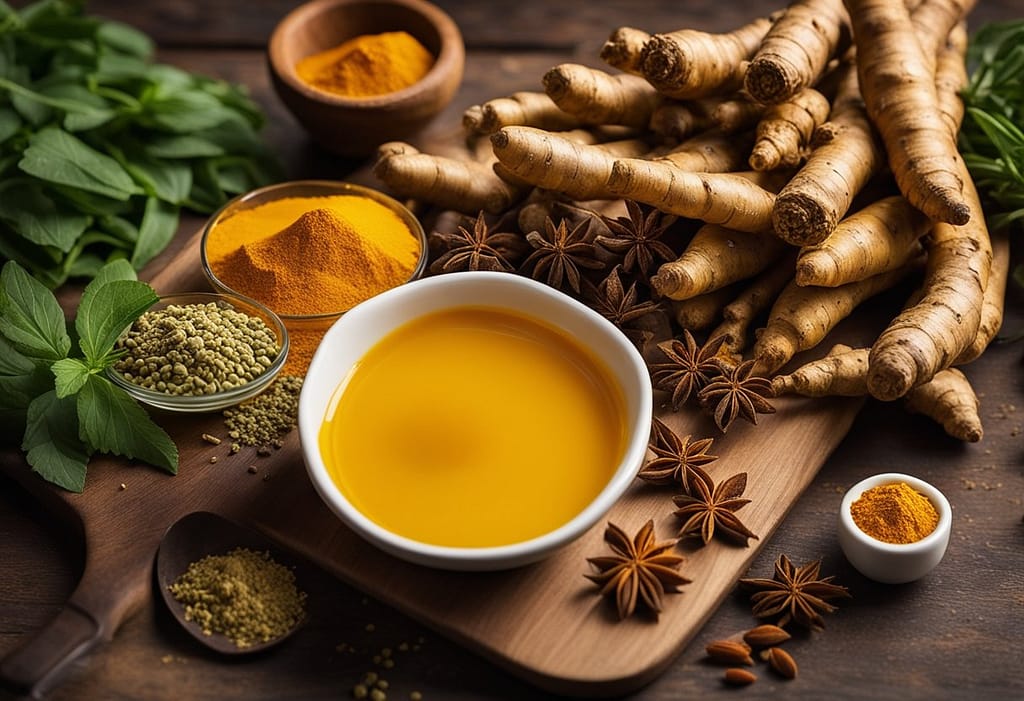
Turmeric supplements have been gaining popularity in recent years due to their potential health benefits. However, not all turmeric supplements are created equal. In this section, we will discuss how to choose the right turmeric supplement and understand the concepts of bioavailability and synergy.
Choosing the Right Turmeric Supplement
When choosing a turmeric supplement, it is important to look for one that contains a high concentration of curcumin, which is the active ingredient in turmeric responsible for its health benefits. Curcumin supplements are also available, but they may not contain the other beneficial compounds found in turmeric.
Capsules are the most common form of turmeric supplement. However, some supplements come in the form of gummies or other chewable forms. It is important to choose a supplement that is free from harmful additives and fillers.
Understanding Bioavailability and Synergy
Bioavailability refers to the amount of a substance that is absorbed and available for use in the body. Curcumin has low bioavailability, meaning that the body has a hard time absorbing it. To increase bioavailability, some supplements contain piperine, a substance found in black pepper that enhances curcumin absorption.
Synergy refers to the interaction between different substances that produces a greater effect than the sum of their individual effects. Turmeric contains several compounds that work together to produce its health benefits. Therefore, it is important to choose a supplement that contains the whole turmeric root extract, rather than just isolated curcumin.
In conclusion, supplementing with turmeric can be a great way to incorporate its healing power into our daily lives. However, it is important to choose the right supplement that contains a high concentration of curcumin, is free from harmful additives, and utilizes bioavailability and synergy to maximize its health benefits.
Safety and Side Effects
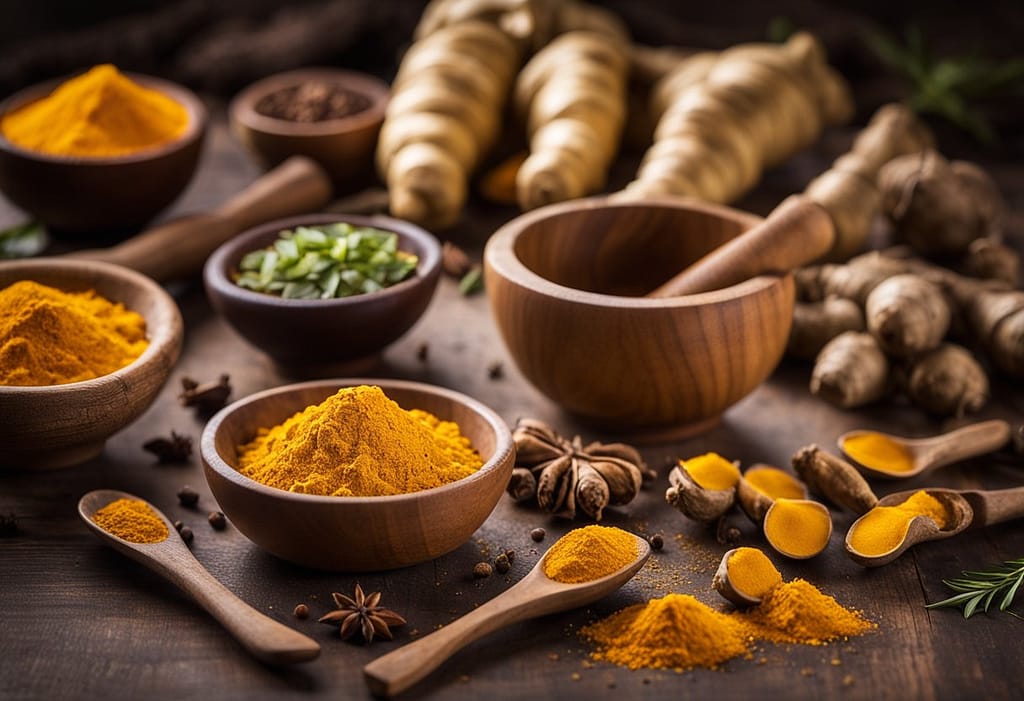
Turmeric is generally considered safe when consumed in moderate amounts. However, some people may experience side effects such as stomach upset, nausea, dizziness, or diarrhea. These side effects are usually mild and go away on their own.
Interactions with Medications
Turmeric may interact with certain medications, including blood thinners, diabetes medications, and drugs that reduce stomach acid. If you are taking any medication, it is important to talk to your healthcare provider before taking turmeric supplements or consuming large amounts of turmeric in your diet.
Recommended Dosages and Precautions
The recommended dosage of turmeric varies depending on the form of turmeric you are using and the reason for use. In general, it is recommended to consume turmeric in moderation and to follow the instructions on the label of any turmeric supplements you are taking.
If you are pregnant or breastfeeding, it is important to talk to your healthcare provider before taking turmeric supplements or consuming large amounts of turmeric in your diet. Turmeric may stimulate the uterus and could be harmful to the fetus in large amounts.
If you have diabetes or are taking diabetes medications, it is important to monitor your blood sugar levels closely when consuming turmeric as it may lower blood sugar levels.
If you have allergies or inflammatory bowel disease, it is important to talk to your healthcare provider before taking turmeric supplements or consuming large amounts of turmeric in your diet.
In summary, turmeric is generally considered safe when consumed in moderation, but it is important to talk to your healthcare provider before taking turmeric supplements or consuming large amounts of turmeric in your diet, especially if you are taking any medication or have any medical conditions.
If you want to learn more about Turmeric, have a look at Turmeric, the Golden Spice – Herbal Medicine

